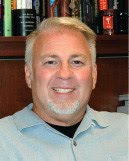I just want to respectfully remind my colleagues, the FDA is not our enemy, without it our industry as we know it would not even exist. Do corporate goals get hindered on occasion by FDA process? Well of course they do, but in the name of keeping us and our industry safe. This is where Dr. Frances Kelsey enters the picture.
Dr. Kelsey at her home today

A key reason that American produced pharmaceuticals and blood products are considered the safest and most desired around the world is because of the oversight and regulations that are enforced by our FDA. It was grave mistakes as well as some selective actions and inactions by a few pharmaceutical corporations that gave the FDA the authority it needed to protect American consumers. These standards that were imposed on our industry in turn have made it one of the safest in the world today. The goal of the FDA is not to be a corporate roadblock, but it provides a huge safety net that protects citizens and by extension our pharmaceutical industry through monitoring and enforcing critical rules and regulations.
This week Dr. Margaret Hamburg, the FDA Commissioner, presented the first Kelsey Award to Dr. Frances Kelsey. Those of you who have sat through one of my Clinical Trials training classes may remember Frances Kelsey as a person who I hold up as an example of a true American hero (and by the way she immigrated to this country from Canada.)
Fifty years ago Dr. Kelsey was the FDA medical officer tasked with reviewing the application for Kevadon, the morning sickness drug that was to be launched in the U.S. by the William S Merrill Company. The drug was already widely used throughout Europe (and many other parts of the world) and Merrill was quite anxious to launch it in the U.S. so the application to the FDA was accompanied by much corporate and political pressure.
Dr. Kelsey was not impressed with the data submitted with the application and was very suspicious of her interactions with the Merrill officials when she attempted to get additional data. As a result Dr. Kelsey denied the approval of Kevadon which is actually better known today by its generic name, thalidomide. Dr. Kelsey held to her principles and as importantly despite intense pressure from Merrill officials and politicians she was backed by her superiors at the FDA. Thousands of children throughout Europe were born without limbs or with flipper-like arms and legs when their mothers took Kevadon. Because of Dr. Kelsey’s steadfast refusal to bend to the pressure of the Merrill executives and because her superiors at the FDA supported her position, the number of children affected with this severe birth defect in this country was exponentially smaller than throughout the world. Dr. Kelsey is often referred to these days as “The midwife of modern pharmaceutical regulation” because of her many contributions to the design of the clinical trial process and the roles she played in the events that resulted in empowering the FDA for our protection.

Children born with the "flipper syndrome" that was the result of thalidomide exposure.

"Flipper syndrome" victims of thalidomide as adults today
The Kelsey Award is going to be presented annually to an FDA staff member that is selected for outstanding public service. I am very pleased that this distinguished award will be named for Dr. Kelsey and I think it fitting she is to be the first recipient. Her example of courage as a government employee is one that we need to remember and celebrate.
So why do we need an FDA? For the pharmaceutical industry, it saves us from ourselves. If our pharmaceutical industry is to remain they envy of the world in terms of safety and efficacy we need to remember oversight and regulations are important for many reasons. We continue to demonstrate that self-regulation (both on the individual level and the corporate level) fall embarrassingly short of its goals. This phenomenon isn’t limited to the pharmaceutical industry. It is true for individual humans and corporations of all types. We are just not capable of adequate self-regulation. Oversight is required. So let’s face it, the Pharmaceutical industry and the FDA need each other. It is a symbiotic relationship that needs to be respected and encouraged to continue to serve the public as it was intended.
Thank you Dr. Frances Kelsey for setting an example for courage and integrity that can resonate with us all today.
Attached is a link to the New York Times story about Dr. Kelsey. It is a fascinating glimpse into the life, the career and the character of this truly amazing person who has played a key role in all of our lives today.
http://www.nytimes.com/2010/09/14/health/14kelsey.html

In 1962 President John F Kennedy presented Dr. Kelsey with the Distinguished Civilian Service Medal for her role in preventing thousands of babies from suffering the devastating effects of thalidomide.Whether we are a patient, a provider or a practitioner in the medical field our lives have all been touched in some way by the contributions of Dr. Frances Kelsey and her service to us all should never be forgotten.

